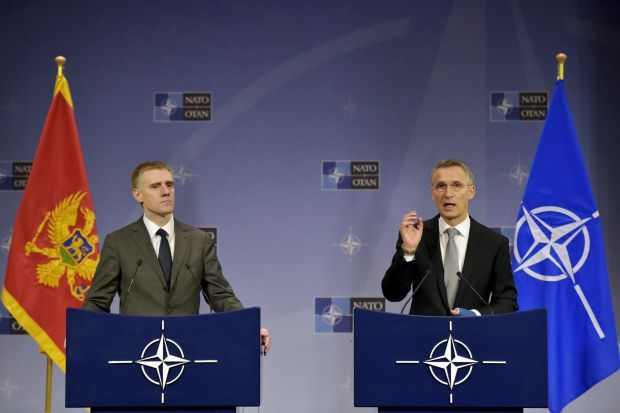
Montenegro on its way to NATO despite Russia's discontent
Montenegro was officially invited early December to launch negotiations on joining NATO. UNIAN gathered expert opinions on the possible impact this could have on the European security architecture, and on how these processes may affect the Euro-Atlantic aspirations of Ukraine.
On December 2, NATO member states approved the decision to start negotiations with Montenegro on accession to the Alliance. NATO Secretary General Jens Stoltenberg said: "Nato foreign ministers have just taken the historic decision to start accession talks for Montenegro to become the 29th member.”
Deputy Prime Minister - Minister of Foreign Affairs of Montenegro Igor Luksic said: "Today we open a new chapter. It is a great day for my country and for the alliance." He went on to say that the news is great “for the western Balkans, for its unity and security.” Luksic added that Montenegro’s steps toward EU and NATO membership do have an effect on neighboring countries, but he said he believed this effect will be seen as positive in the nearest future.
Montenegro intends to continue reforms, as an invitation to join NATO is not the end of the process, but only the beginning of a new stage of relations.
It should be noted that the decision to consider Montenegro as a candidate for NATO membership was first adopted in September 2014 at a NATO summit in Wales. The newly established state, which gained independence in 2006, has been given time until the end of 2015 to complete the reforms process. In this regard, Luksic said that Montenegro intends to continue reforms, as an invitation to join NATO is not the end of the process, but only the beginning of a new stage of relations.
Home stretch
According to Volodymyr Fesenko, political scientist, director of the Penta Center for Political Studies, Montenegro is now on the home stretch of Euro-Atlantic integration, and an invitation to NATO is its final stage. Procedurally this means the beginning of negotiations on how and when Montenegro is to become a NATO member state.
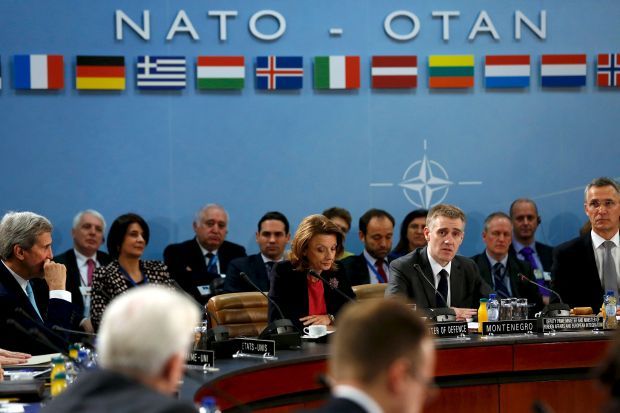
Oleksiy Melnyk, co-director of foreign policy and international security programs at Razumkov Center, adds that it usually takes two to four years to join NATO after the official invitation, but it depends on how quickly the candidate country fulfills the necessary requirements. "There is a Membership Action Plan [MAP] and annual programs. The two sides sit down together and outline an action plan of what the country should do in order to become a full member of NATO. Then, at the end of each year, they summarize the results and estimate the progress made, all of which influences the decision. This is a technical side to the issue," he said.
A political expert and director of the Center for Civil Society Studies, Vitaly Kulik, said that Montenegro had done its homework and is now successfully implementing the standards of the Alliance. "Now Montenegro has already passed all the procedures necessary to implement NATO standards in the military field, political area and in the fight against corruption. Although we can say that Montenegro has had a rather decent political culture and political system, as well as fine economic performance. At the moment, it’s one of the NATO’s possible successful examples of expansion," he said.
NATO is the only organization that reliably ensures against external military aggression.
In turn, Melnyk notes that the issue of NATO membership has a certain political pretext, but in the case of Montenegro, there should be no such barriers as Georgia and Ukraine have faced. "The Balkans, as we know, have a recent history of conflict, and remain vulnerable to regional destabilization. The accession of Montenegro to the Alliance is a win-win solution both for NATO and for the country itself, as lacks security greatly. Today, NATO is the only organization that reliably ensures against external military aggression... However, NATO membership - is not only an opportunity to get some reassurance. It also means additional responsibility. That is, it’s quite a powerful deterrent in case there are any conflicts with neighbors," says the military expert.
Fesenko shares this opinion, saying that the political issue of Montenegro joining NATO is almost resolved. In addition, the scale of the country favors the situation: "Montenegro is small; it’s about a region where NATO has already been acting as European police anyway, providing regional security." Moreover, if no major political turbulence shakes the region in the near future, Serbia may be the next one to engage in active talks on NATO membership. “It would really be a spit in Russia’s face," the analyst believes.
However, it is too early to discuss this issue.
Russian grumbling
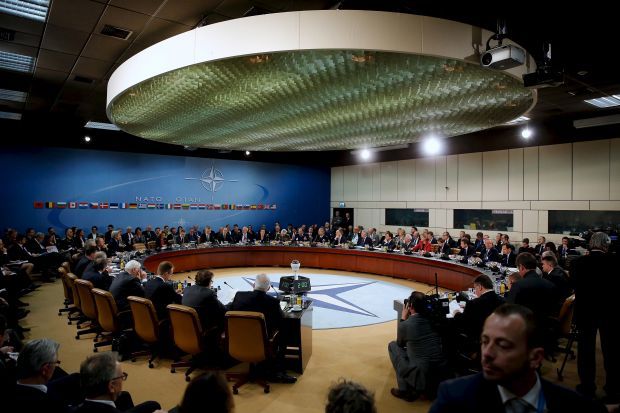
The Russian authorities have repeatedly declared that Montenegro’s accession to NATO would be a "negative step for European security and relations between Russia and Montenegro." Shortly before the adopted decision to start negotiations with Montenegro on NATO membership, Chairman of the Federation Council’s Committee on Defense and Security Viktor Ozerov said that any programs earlier launched between Russia and Montenegro shall be stopped. "Montenegro should be aware that, in connection with its accession to NATO, many of the programs that they had implemented with Russia, including on military-technical cooperation, will be impossible," said the Russian official.
NATO base in Montenegro will lead to the fact that the country will be left without Russian investments, which for many years have been quite significant.
In turn, a member of the Russian Duma's international affairs committee, Nikolai Levichev, warned that Montenegro will be deprived of Russian investments. "Montenegro is another piece of the former Yugoslavia, which will join the Alliance. It is difficult to expect something completely different from the non-independent states, which don’t even their own currency. NATO base in Montenegro will lead to the fact that the country will be left without Russian investments, which for many years have been quite significant," he said.
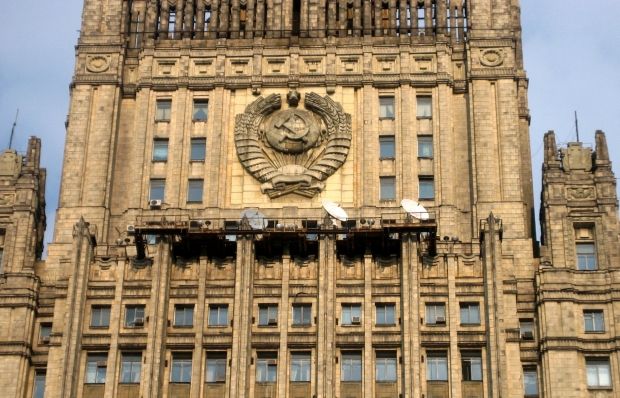
According to the head of the Federation Council’s Committee on International Affairs, Konstantin Kosachev, "from the perspective of the European collective security, in terms of uniting in the face of new challenges and threats, any expansion of NATO is not a step forward, but a step back."
The head of the Russian State Duma Committee on Foreign Affairs, Alexei Pushkov, went even further saying that Montenegro’s accession to NATO is due to the conspiracy of pro-American, western elites who lead the Eastern European states. "As we know, there were wide public protests in Montenegro against joining NATO. The referendum has not been held. According to opinion polls, the government would have failed to gain enough support [for NATO accession] in the referendum. Therefore, it’s not about the will of the people, I believe. It is a conspiracy of pro-American, Western elites who lead the Eastern European states. Also, the constant expansion of NATO confirmed that the organization aims to confront Russia, first of all," said Pushkov.
The Kremlin said that a NATO decision "can not but lead to reciprocal actions from the east, that is from the Russian side."
The Russian Foreign Ministry, in turn, noted that they would try to dissuade the country from joining the alliance. But the Kremlin said that a NATO decision "can not but lead to reciprocal actions from the east, that is from the Russian side." Putin’s spokesman, Dmitry Peskov, said that Russia's possible actions are needed to "maintain the parity of interests." Given that Russia ahs no particular interest in the Balkans, other than symbolic, such statements by the Kremlin show once again its rudimentary imperial ambitions.
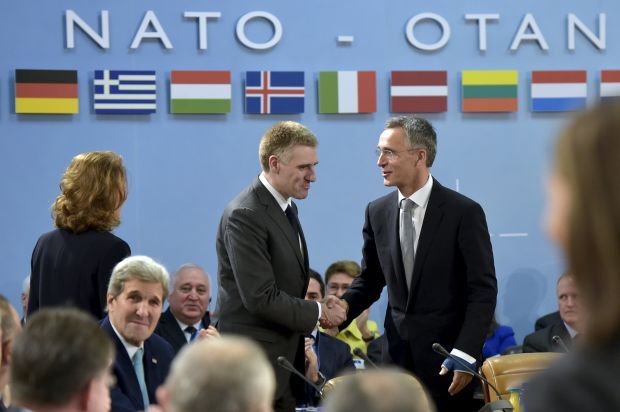
Moreover, Stoltenberg stressed that no other parties can interfere in the issue of Montenegro’s accession: The decision to invite Montenegro to become a full member is not about Russia. It is about Montenegro and about NATO. And the decision to invite Montenegro is not directed against anyone, it is for our shared security.”
"Bosnia and Herzegovina, Georgia and the Former Yugoslav Republic of Macedonia, are also making progress towards NATO membership. We remain as committed as ever to the NATO membership aspirations of these countries. We will do everything we can to assist them in achieving their goals, judging each aspirant country on their own merits. And we encourage them to continue along the path to reform. Today's decision shows that hard work on reform pays off," said Stoltenberg.
The tactics of "hybrid warfare"
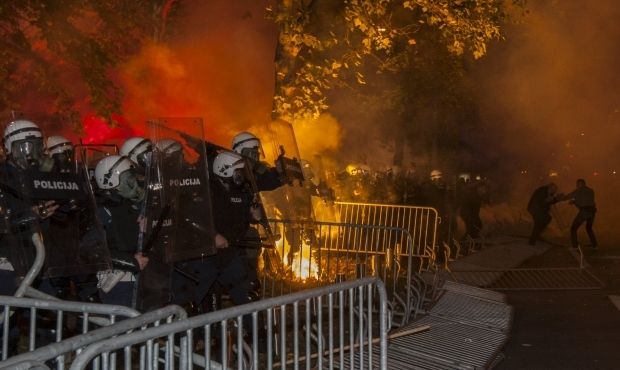
Russian secret services staged mass protests in Montenegro’s capital and other cities across the country, thus trying to destabilize the situation ahead of the NATO’s decision, according to Fesenko.
In this regard, a military expert at Razumkov Center, Oleksiy Melnyk, said that Russia's capabilities to counter Montenegro’s accession to NATO can’t be neglected. According to him, Russia usually acts in some kind of destabilizing context: with Georgia it was, in fact, an open war, with Ukraine it is hybrid aggression.
If necessary Russia may involve energy and economic instruments; besides it may try to use its allies in the ranks of NATO members, primarily France, maybe Greece, Hungary, and Germany, to some extent.
Given the powerful economic, including the private, interests of the Russians in Montenegro, it can not be excluded that the schemes can be used which successfully operate in Ukraine. "It’s about the entering of the Russian business into the country, accompanied with corruption. This is what Russia has been successfully using in its tactics of "hybrid warfare": bribing politicians, gaining an opportunity to influence the decision-making process, feeding radical anti-NATO organizations and political movements. The entire arsenal remains relevant," says the expert.
Russia may try to provoke a political crisis, delay the deadlines and not allow Montenegro’s accession to NATO.
Vitaly Kulik agrees with the expert saying that it ill be hard for Montenegro, which is tied to the Russian business and investment, to overcome the vestiges of the post-Soviet dependence on the Russian metropolis. In addition, amid acute confrontation between the West / NATO and Russia, Montenegro could end up in political turbulence. That is, Russia may try to provoke a political crisis, delay the deadlines and not allow Montenegro’s accession to NATO because the process that this country must pass before gaining membership will take at least three years. "Russia earlier succeeded in influencing political processes in the Balkans, especially in Macedonia and Serbia. Therefore, there are significant risks. While inviting Montenegro to NATO and accelerating the process of the country’s integration, the Alliance must keep in mind that this also is a definite challenge to the security of the entire Balkans. A counter strategy is needed to tackle possible negative effects on the situation on the part of Russia," he said.
That is, according to Kulik, Russia can use a variety of destructive elements of destabilization. It may be economic and political leverages, support for terrorism, revanchist sentiments, populist and nationalist groups.
An inspiring example
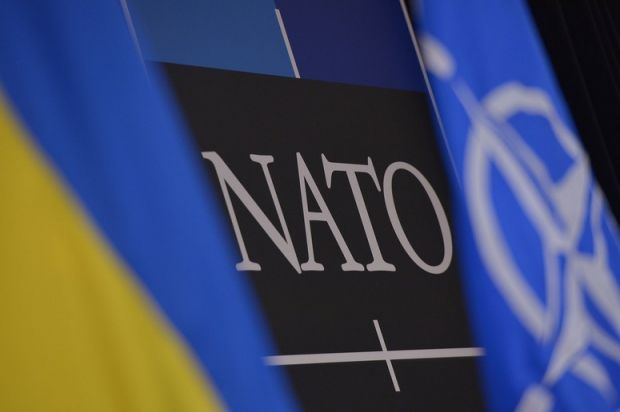
The experts opine that the invitation to join Alliance is an absolutely natural and logical development for Montenegro. But the Alliance is not ready yet to move further into the post-Soviet regions. According to Volodymyr Fesenko, Georgia still remains at the gate, as potential membership bears less risk than Ukraine’s. Despite real will to join the Bloc, Ukraine has virtually no chances to do so right after Montenegro.
Montenegro’s case is very indicative for Ukraine, and the country may use some positive experience in terms of reforms, consistent advance on the path of the European integration that eventually leads to NATO.
In turn, Oleksiy Melnyk also notes that there is a well-balanced official policy regarding Ukraine these days. There is understanding in Kyiv, in Brussels, and in other western capitals that Ukraine's accession to NATO is premature. Considering the common will to enhance security and stability, it is probably better now not to initiate further movement toward integration, he said.
However, experts agree that Montenegro’s case is very indicative for Ukraine, and the country may use some positive experience in terms of reforms, consistent advance on the path of the European integration that eventually leads to NATO.
In this regard, according to Vitaly Kulik, an invitation of Montenegro to NATO must accelerate and update the issues related to the Ukrainian Euro-Atlantic goals. "The success of Montenegro and NATO membership have provoked debate in Ukraine to accelerate the implementation of NATO standards and decide on how closely we really cooperate with the Alliance and on the shape of such cooperation. Since the higher level of cooperation is not enough to move to a new phase of interaction," he said.
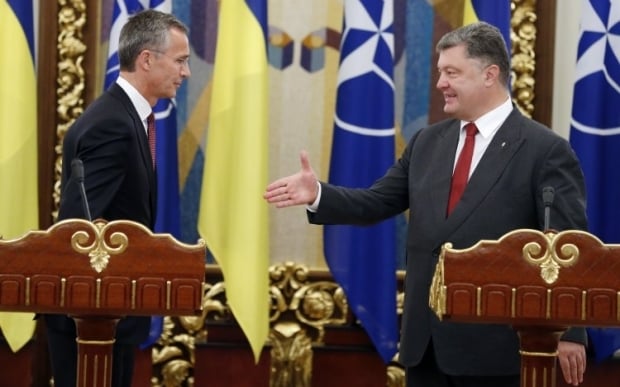
At the same time, President of Ukraine Petro Poroshenko, addressing the military on the occasion of the Day of the Armed Forces of Ukraine, said that "The Atlantic landmark is key" in the Ukrainian military reform. A military doctrine of Ukraine seeks to ensure full compatibility of Ukrainian Armed Forces with relevant forces of NATO member states. Although, the deadline is only set for 2020.
Kostyantyn Honcharov

